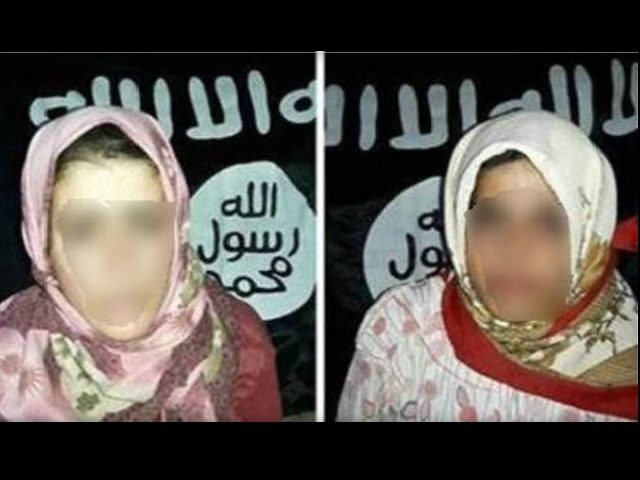An Islamic State raid last week resulted not only in the deaths of hundreds of locals in Sweida, southern Syria, but the abduction of at least three dozen women and children, the Syrian Observatory for Human Rights (SOHR) announced on Monday.
The raid of Sweida, a primarily Druze city, occurred last Wednesday, according to the NGO group, spanned over three days, and left more than 200 people in the city dead. The Syrian Observatory noted that locals found at least 36 women and children missing from both the group of dead and the group of survivors, all of whom are believed to have been taken captive by the jihadi attackers. In that number, the head of SOHR, Rami Abdel-Rahman, told Agence-France Presse (AFP) that “four of them managed to flee to Druze areas, two others died and 30 are still in captivity.”
While 17 men in the group have also continued missing, the abduction of men by the Islamic State is a rare practice, suggesting that they were killed and their bodies have not yet been found.
Unlike many such attacks, the Islamic State has yet to take credit for the attack through its official media arms. Yet the Jerusalem Post notes that images of the siege surfaced over the weekend, sent to surviving families and prominently displaying the Islamic State flag. The newspaper notes that the photos were sent with threats to harm the women in question and demands that the regime of dictator Bashar al-Assad stop targeting the few remaining Islamic State strongholds in the country, particularly a small pocket of jihadist resistance near Israel’s Golan Heights.
The Islamic State also continues to operate in Daraa, a region ravaged by joint Assad regime and Russian/Iranian attacks on anti-Damascus rebels in the area. According to AFP, ISIS terrorists are trying to use the women captured in Sweida as bargaining chips to help the jihadists stuck in Daraa escape in a trade. The Russian government has reportedly responded to the trade offer with more airstrikes on ISIS pockets in Daraa.
The United Nations confirmed that the Islamic State published these images on Tuesday.
“Photos of some of these abducted women were later tweeted, with threats to burn them alive if the government did not cease military operations against ISIL [Islamic State in Iraq and the Levant] in western Dara’a and release ISIL women and men who were in government custody,” U.N. human rights spokeswoman Ravina Shamdasani said in a statement.
The Druze are a small minority in Syria that follow an eclectic mix of beliefs from other Abrahamic faiths. As they do not adhere to strict Wahhabi Sunni Islam, they are prime targets for an Islamic State genocidal attacks. Other minorities in the region the Islamic State have targeted include Christians, Shiite Muslims, and Iraqi Yazidis. The Sweida attack is the first of its kind specifically targeting the Druze minority.
The slow resurgence of the Islamic State in areas controlled by Assad, along with his Russian and Iranian allies, reflects a growing trend in the region echoed in recent developments in Iraq. Where the United States and its Kurdish allies have ceased fighting the Islamic State, the jihadist group has taken advantage of weaker substitutes to thrive.
In Iraq, the region most affected by this change is Kirkuk, controlled by Kurdish Peshmerga forces since the Iraqi army fled an ISIS attack in 2014. Following the Kurdistan Regional Government (KRG) hosting a non-binding referendum on independence in September, the Iraqi government forced the Peshmerga out of the multi-ethnic Kirkuk. The Trump administration refused to “take sides” in the matter, forcing the Peshmerga to leave to avoid conflict with Iraq’s allies, the Iranian-backed Popular Mobilization Units (PMF/PMU).
The Peshmerga withdrew late last year. This month, locals have begun protesting that the Islamic State has mounted a resurgence. “Ever since the Peshmerga forces left the area, five residents of our village have been killed,” Khasraw Ali, a resident of a village in northern Iraq, told the Kurdish outlet Rudaw after the Islamic State reportedly razed several villages last week. “We have no social issues with anyone. It is Daesh [ISIS] who is killing our families.”
This weekend, several Iraqi news outlets reported that the Islamic State lined a power plant near Kirkuk with explosives and blew it up, exacerbating already existing infrastructure difficulties as Baghdad struggles to pay Iran for its electricity in the middle of a particularly dry summer. The government confirmed the explosion but only identified the assailants as a “terrorist group.”

COMMENTS
Please let us know if you're having issues with commenting.